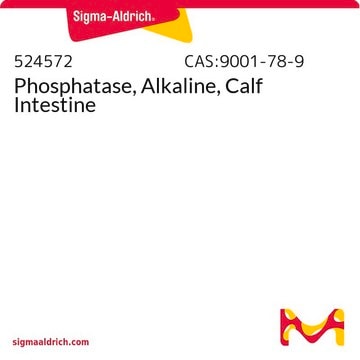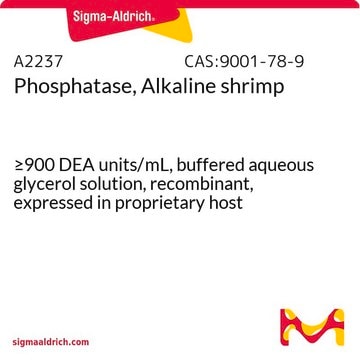P8361
Phosphatase, Alkaline bovine
recombinant, expressed in Pichia pastoris, ≥4000 units/mg protein
Synonym(s):
Orthophosphoric-monoester phosphohydrolase (alkaline optimum)
About This Item
Recommended Products
recombinant
expressed in Pichia pastoris
form
solid
specific activity
≥4000 units/mg protein
mol wt
apparent mol wt 160 kDa
storage temp.
2-8°C
Related Categories
Application
Biochem/physiol Actions
Unit Definition
signalword
Danger
hcodes
pcodes
Hazard Classifications
Resp. Sens. 1
Storage Class
11 - Combustible Solids
wgk_germany
WGK 1
flash_point_f
Not applicable
flash_point_c
Not applicable
ppe
Eyeshields, Gloves, type N95 (US)
Choose from one of the most recent versions:
Already Own This Product?
Find documentation for the products that you have recently purchased in the Document Library.
Customers Also Viewed
Our team of scientists has experience in all areas of research including Life Science, Material Science, Chemical Synthesis, Chromatography, Analytical and many others.
Contact Technical Service





